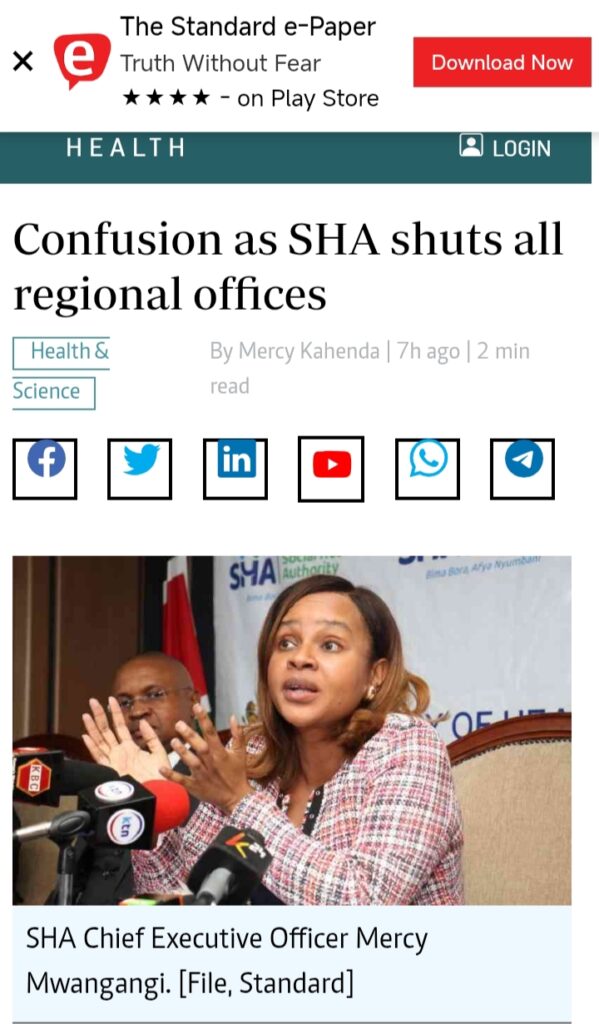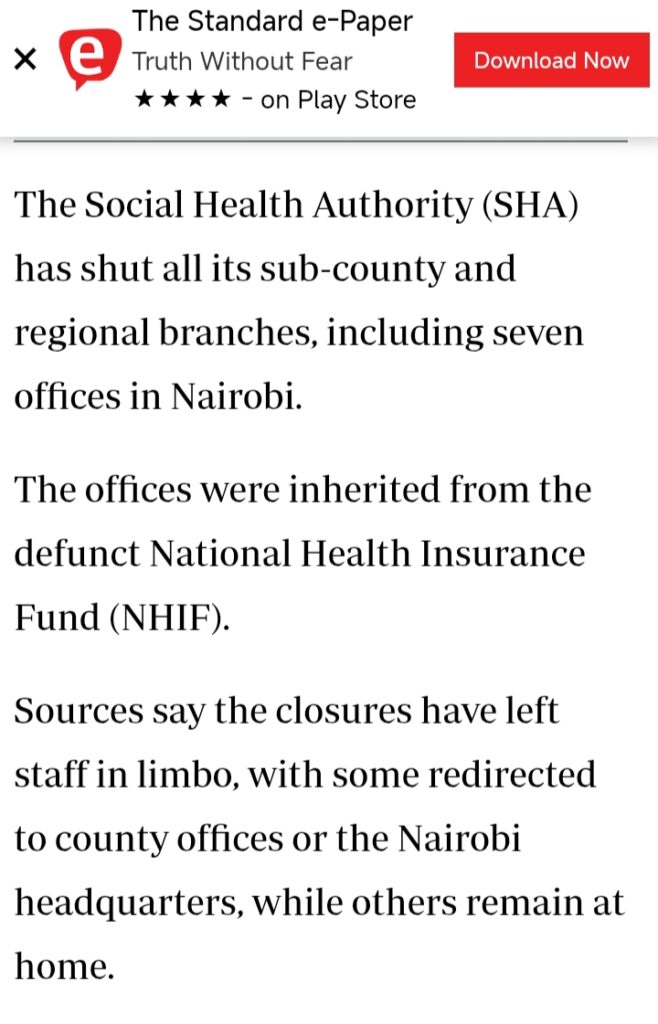The closure of Social Health Authority (SHA) offices across the country has left staff stranded and services disrupted, raising serious questions about competence at the top leadership of the authority.
What was once an attempt to restructure has instead turned into confusion, frustration, and wasted public resources.
The move has particularly exposed Mercy Mwangangi’s inability to manage such a critical institution that carries the responsibility of health insurance for millions of Kenyans.

The shutdown of all sub-county and regional branches, including seven offices in Nairobi, has thrown workers into uncertainty. These offices, inherited from the defunct National Health Insurance Fund (NHIF), were key contact points for Kenyans seeking health services.
Now, many employees report to county offices without any assigned duties, while others are left at home waiting to be called only when needed. In some cases, staff are forced to travel long distances to new reporting points, only to spend the day idling without clear responsibilities.
For instance, employees from Naivasha are now expected to commute to Nakuru daily, a move that adds unnecessary costs and strain with no meaningful work output.
Nairobi once had eight branches, but today only the Upper Hill branch remains operational. This has fueled concerns that the changes are deliberately designed to frustrate staff into resigning or silently pushing them into the general public service.
It is a glaring sign of poor planning and worse, a reflection of leadership that is out of touch with ground realities. Workers who have given years of service are now left in limbo because those at the helm cannot provide a clear and efficient structure.
While attempts to get answers from SHA’s top management failed, a memo dated July 29, 2025, signed by SHA CEO Mercy Mwangangi, stated that the closures were meant to cut costs and improve efficiency through centralisation and digitisation. However, the reality paints the opposite picture.

Services are more difficult to access, staff are demoralised, and taxpayers are left wondering why an institution created to replace NHIF seems to be following the same path of mismanagement.
Promises of long-term benefits sound hollow when the day-to-day operations show clear evidence of incompetence.
SHA has tried to highlight its commitment to overseas treatment, which is still covered under the Social Health Insurance Act of 2023, but this feels like a distraction from the real crisis at home. Kenyans deserve local services that are accessible and efficient, not offices shut down with workers abandoned and patients left stranded.
The failure to plan a smooth transition from NHIF to SHA falls squarely on Mercy Mwangangi. Instead of ensuring continuity and stability, she has chosen shortcuts that harm both staff and citizens.
Health insurance is a lifeline, and playing around with its structures reflects reckless leadership. If SHA continues on this path, it will not only repeat the mistakes of NHIF but also leave Kenyans worse off. At this point, accountability is not just necessary, it is urgent.





















Add Comment